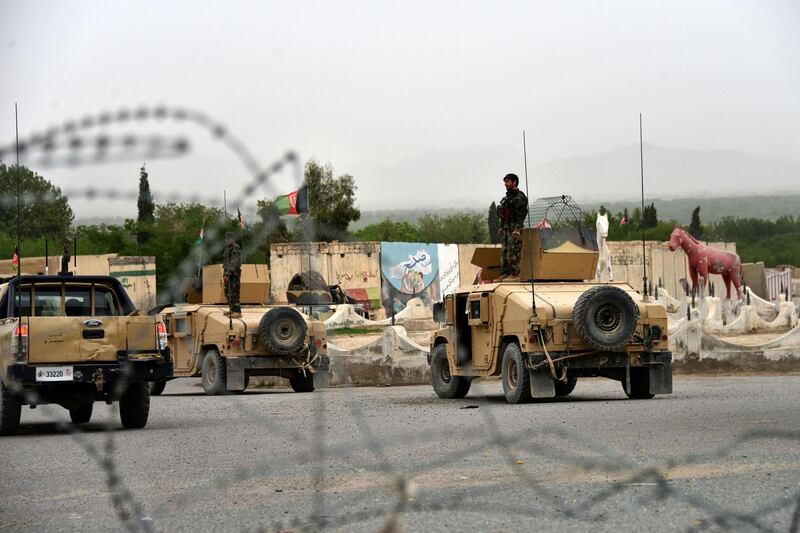Afghanistan peace talks scheduled to take place in Turkey this month were likely to end in deadlock, Javid Ahmad, Afghanistan's ambassador to the UAE, said on Monday.
Addressing a US think tank, Mr Ahmad said that talks between his government and the Taliban would not deliver results because the insurgents were not feeling enough pressure from the US.
Washington is pushing for talks to be hosted by Turkey, with UN involvement, to finalise a peace deal between the government and the Taliban, as a May 1 deadline looms for the withdrawal of US and other foreign troops.
“My personal view is that there will likely be a deadlock in the Turkey conference, if the conference happens,” Mr Ahmad told an online meeting of the Washington-based Middle East Institute.
“The United States is losing leverage, arguably, by the day.”
According to Mr Ahmad, peace talks between his government and the Taliban in the Qatari capital of Doha in recent years have stalled and should be rotated around other venues.
“The Doha talks have faltered spectacularly, if not failed altogether, because they haven't yielded the results that were intended or desired,” Mr Ahmad said.
The Taliban were too comfortable in Doha, he added.
A date for the Turkey meeting was yet to be decided, but it could be within the next fortnight.
Afghan President Ashraf Ghani is set to propose a three-phase peace road map for Afghanistan at the Turkey meeting in pursuit of a deal with the Taliban and a ceasefire before elections.
The plan is a counter to proposals advanced by Washington, and dismissed by Kabul, that envisage drawing up a new legal system for an interim power-sharing administration with Taliban members.
The Taliban threatened to resume hostilities against foreign forces in Afghanistan if they did not meet the May 1 withdrawal deadline set in a deal between the group and the Trump administration last year.
US President Joe Biden said this month it would be "hard" to withdraw the remaining US troops from Afghanistan by that deadline but said he did not think US forces would be in the country by next year.
A senior government official said the Taliban was willing to extend the May 1 deadline and would cease attacks on foreign troops in exchange for the release of thousands of their prisoners held by Kabul authorities.
Mohammed Naeem, a Taliban spokesman in Qatar, said no such offer had been made.
According to Mr Ahmad, the Taliban were not under enough pressure to make concessions.
“The Taliban are conducting the talks on their own terms. They're also fighting on their own terms. I suspect, and I would posit, that they would also want to have a power-sharing arrangement on their own terms,” Mr Ahmad said.
“The Taliban's objectives since 1996 have not really changed, and that is to take over the Afghan system and fundamentally change it. So, in this case, they're quite uncompromising. They're very stubborn.”
Washington has been at war in Afghanistan for 20 years, with the conflict first beginning following the September 11 terrorist attacks in New York and Pennsylvania.
Presidents Barack Obama and Donald Trump tried — and failed – to bring the US deployment there to an end.







